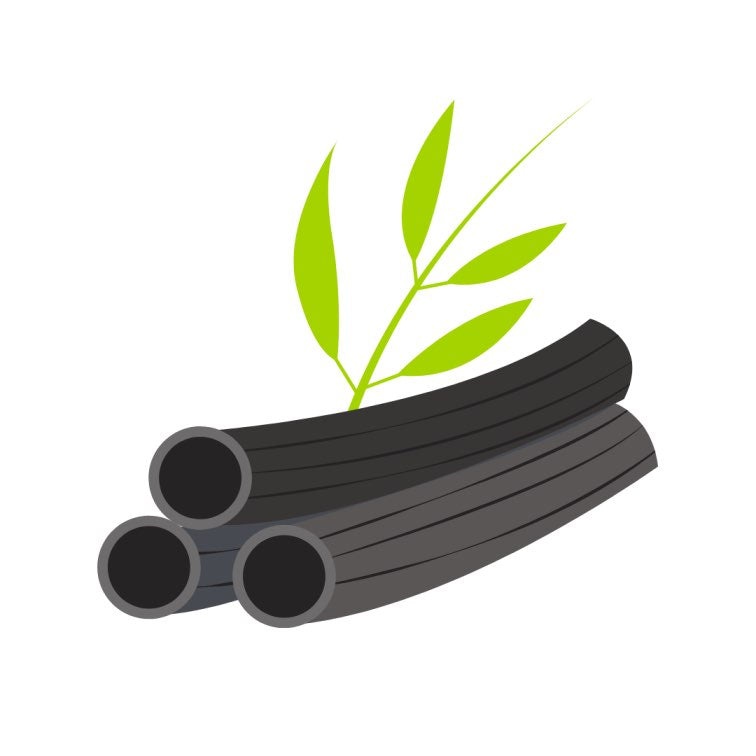Sustainability has become a buzzword in recent years, with more people recognizing the importance of reducing their environmental impact. However, many believe that sustainable living requires a lot of money or significant lifestyle changes. In reality, adopting sustainable habits can be simple and cost-effective. In this article, we will explore ten sustainable habits that will cost you nothing but can make a significant difference.
1. Use a Water Filter Instead of Buying Plastic Water Bottles
The environmental impact of plastic water bottles cannot be overstated. It is estimated that globally, we use one million plastic bottles every minute, and only 9% of those bottles are recycled. Using a water filter is a sustainable alternative that reduces waste and saves money in the long run. A water filter costs much less than buying bottled water, and it reduces the plastic waste generated from single-use water bottles.
Stay hydrated and enjoy perfectly filtered water anywhere you go with the GOpure Pod Water Filter.
2. Take Care of What You Have to Make It Last Longer
Consumerism and planned obsolescence contribute to waste production and resource depletion. Taking care of your belongings is a sustainable alternative that extends their lifespan and reduces the environmental impact of consumerism. Sewing and fixing electronics are some examples of how to maintain belongings.
3. Make Your Own Lunch Instead of Dining Out
Dining out generates a significant amount of food waste. Making your own lunch is a sustainable alternative that saves money as well. Meal prepping and packing your lunch can save time and allow for healthier meal options. Packing your lunch to go is a simple and sustainable habit that can have a big impact on the environment.
To pack your lunch sustainably, consider making the switch to a reusable lunch box made of stainless steel or bamboo. These materials are durable, non-toxic, and easy to clean, making them a great choice for everyday use.
4. Use Leftovers to Make New Meals
Reducing food waste is an important step in preserving the environment and using leftovers is a sustainable alternative. To make the most out of your leftovers, start by storing them properly. Choose glass containers with airtight lids, or consider using beeswax wraps or reusable silicone bags. Label your containers with the date to ensure you use the oldest food first. When storing leftovers, make sure they are at room temperature before placing them in the fridge to prevent bacterial growth. With many resources available for creative leftover meals, there's no reason to let good food go to waste.
5. Open Windows to Naturally Freshen Air Instead of Purchasing Synthetic Fragrances
Synthetic fragrances used in air fresheners contain harmful chemicals that can contribute to air pollution and exposure to harmful toxins. Opening windows to naturally freshen the air is a sustainable alternative that costs nothing and improves indoor air quality. Houseplants and natural cleaning products can also help to improve indoor air quality.
6. Swap Clothes with Friends Instead of Buying New
The fast fashion industry generates a significant amount of textile waste and water pollution. Swapping clothes with friends is a sustainable alternative that allows for a change of wardrobe without contributing to the environmental impact of fast fashion. Organizing clothing swaps and creating a sustainable wardrobe can also save money.
7. Use Your Shower Towel Several Times
When you get out of the shower, I would assume you are clean, right? Otherwise, what's the purpose?:) With the same asumption, I would say that the towel you used is in good shape and you can probably give it a few more shots before throwing it in your laundry basket. Reusing shower towels several times instead of washing them after each use will help you save water and energy. Also, air drying towels and washing them on cold can extend their lifespan.
8. Wash Your Clothes on Cold
Hot water laundry contributes to energy consumption and carbon emissions. Using a detergent specifically designed for cold water can also improve the effectiveness of cold water laundry. This plastic-free laundry detergent is formulated to work effectively at lower temperature, and cold water can help prevent color fading and shrinkage, making it a gentler option for your clothes.
9. Turn Off the Water When Brushing your Teeth
One easy and effective way to save water and reduce your environmental impact is to turn off the tap while brushing your teeth. Running the water while brushing can waste up to 4 gallons of water per minute, which adds up quickly over time. By turning off the tap, you can save thousands of gallons of water each year, as well as reduce your water bill. This simple habit takes only a few seconds to adopt and can make a big difference in conserving our precious natural resource.
One helpful tip for remembering to turn off the water while brushing your teeth is to set up a visual reminder until it becomes a habit. For example, place a sticky note on your bathroom mirror or the faucet handle that says "turn off the water."
10. Turn Off Lights During the Day or When You’re Away
Another easy way to reduce your energy consumption and carbon footprint is to turn off lights during the day. Many people forget to turn off lights in unoccupied rooms, which can waste a significant amount of energy. By making a conscious effort to turn off lights when leaving a room, you can reduce your energy use, save money on your electricity bill, and help to protect the planet. Natural light can be a great alternative to artificial light during the day, so consider opening curtains or blinds to let in natural light instead.
Plus, exposure to natural light during the day can improve your sleep at night and promote feelings of alertness during the day
*Bonus: Sustainable, Energy-Saving Tips that Cost You Nothing
There are many other ways to reduce your energy consumption and environmental impact beyond turning off the water and lights. For example, you can use energy-efficient light bulbs, unplug electronics when not in use, use a programmable thermostat, and seal air leaks in your home. Small changes like these can add up to significant energy savings over time.
Additionally, consider adopting sustainable transportation habits like walking, biking, or taking public transportation instead of driving alone. By making a conscious effort to reduce your energy use, you can make a positive impact on the environment and save money on your utility bills.
Embrace Sustainable Habits and Help the Planet Without Spending a Dime!
Adopting sustainable habits in our daily lives can have a significant impact on our environment and contribute to a better future for all. Each of these habits requires little to no additional cost and can easily be incorporated into our daily routines.
By taking action and making sustainable choices, we can create a better world for ourselves and future generations. It is important to remember that even small changes can make a big difference, and we all have a role to play in protecting our planet.
Let's make a commitment to adopt these habits and continue to explore other ways we can live sustainably. Together, we can make a positive impact on the world! To support your sustainable living, we are giving you 10% OFF you can use towards your first order with Green Eco Dream. Use code: BLOG10 at checkout.
If you enjoyed reading this Blog, please share it, and help us get the word out together. Thank you! 😊


























